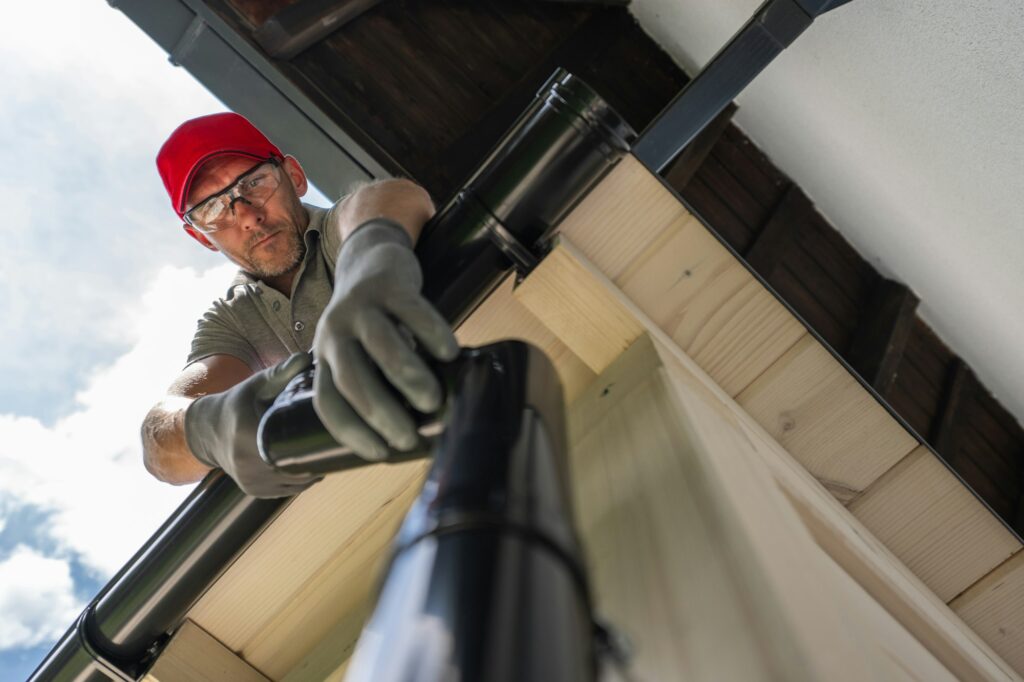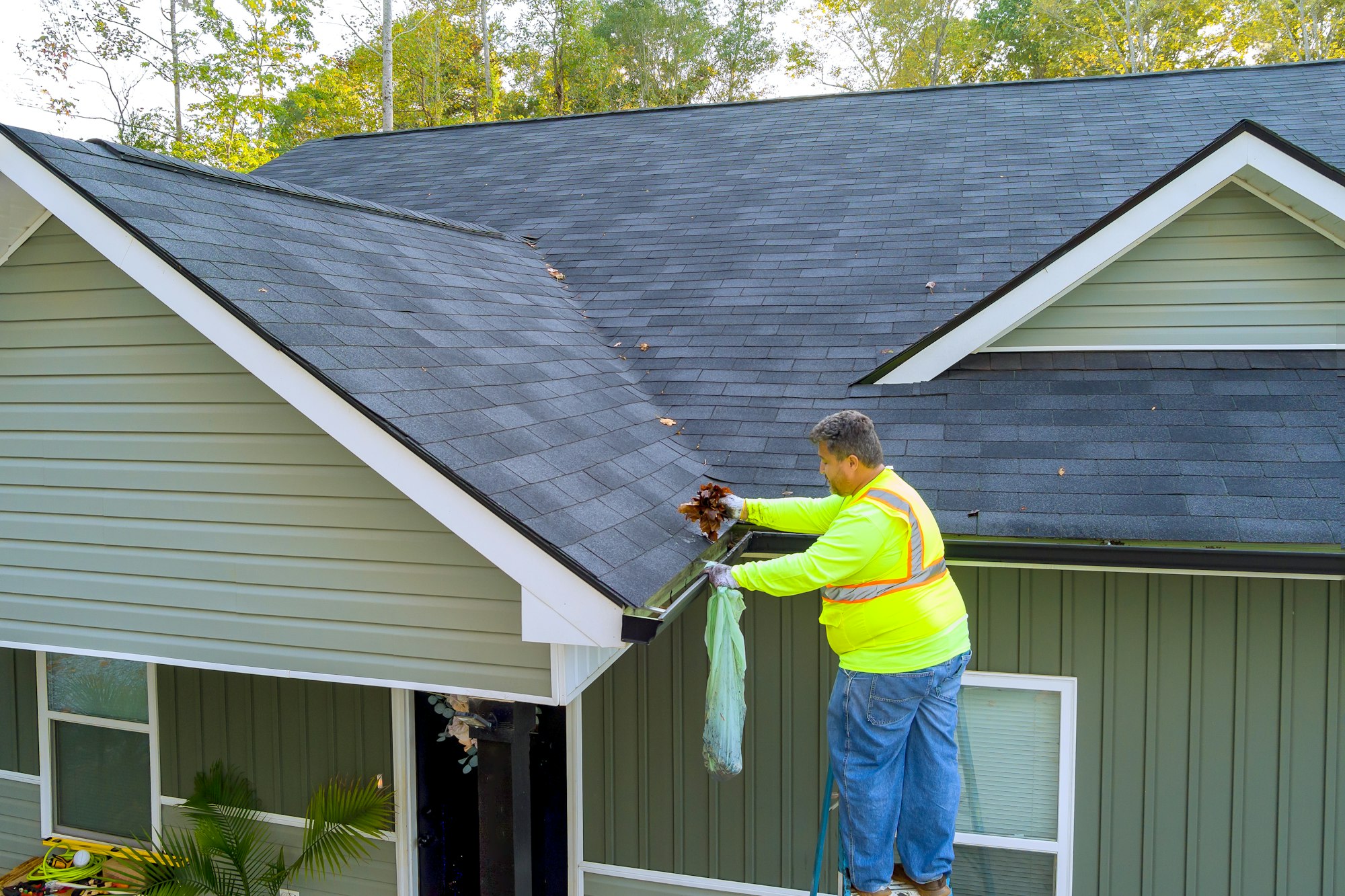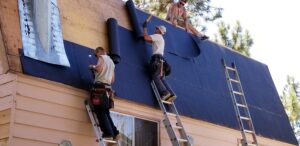Is your roof leaking or looking worn? A reliable contractor can protect your home and investment. Learn key tips for choosing the right professional, common roof repair issues, and the benefits of acting quickly.
To dive deeper into roof care, check out our comprehensive blog on roof maintenance.
- Why Hiring a Qualified Contractor for Roof Repair is Crucial
- 10 Tips for Choosing the Right Roof Repair Contractor
- 1. Look for Local Contractors
- 2. Verify Licensing and Insurance
- 3. Check for Warranties
- 4. Ask for References
- 5. Request Detailed Written Estimates
- 6. Inquire About Experience
- 7. Examine Communication Style
- 8. Compare Multiple Bids
- 9. Check for Manufacturer Certifications
- 10. Review the Contract Thoroughly
- Common Roof Repair Issues to Be Aware Of
- The Benefits of Timely Roof Repairs
- Conclusion
Why Hiring a Qualified Contractor for Roof Repair is Crucial
Hiring a licensed and qualified roofing contractor isn’t just a recommendation; it’s essential. Not all roofing jobs are created equal, and a poorly executed repair can lead to bigger problems, including water damage, mold growth, and structural issues. Here are some key reasons why hiring a professional contractor matters:
- Expertise and Training: Certified roofing contractors undergo extensive training, ensuring they know the ins and outs of roof repairs. Learn why regular roof inspections are essential to maintaining your roof’s health.
- Insurance Coverage: A qualified contractor will carry liability insurance, protecting you from any damage during the repair process.
- Warranty Protection: Most licensed contractors offer warranties on their work, providing you with long-term peace of mind.
- Legal Compliance: Professionals adhere to building codes and regulations, ensuring your repairs meet all safety standards. If you’re unsure about your contractor’s qualifications, here’s a guide to finding reliable roofers in your area.

10 Tips for Choosing the Right Roof Repair Contractor
Selecting the best contractor for roof repair can be overwhelming, especially with the vast number of options available. Here’s a list of ten essential tips to guide you through the process and ensure you make a well-informed decision.
1. Look for Local Contractors
Hiring a local roofing contractor offers several advantages. Local contractors are familiar with the region’s weather patterns, common roofing materials, and local building codes. More importantly, they’re easier to track down if problems arise later on. For an in-depth look at choosing the right contractor, check out our Ultimate Guide to Finding a Reliable Roofing Contractor.
2. Verify Licensing and Insurance
Make sure the contractor you hire is licensed and insured. Ask for copies of their licensing documents and verify their insurance coverage. This protects you from any liability in case of on-site accidents.
3. Check for Warranties
A quality roofing contractor should offer a warranty on both their workmanship and the materials they use. Warranties are an excellent way to ensure that you’re protected in case issues arise after the repair is completed. To better understand warranties, read Understanding Roof Repair Warranties.
4. Ask for References
One of the best ways to vet a contractor is by asking for references from past clients. This will give you a clear idea of the contractor’s work ethic, reliability, and quality. You can also check online reviews on platforms like Google or the Better Business Bureau (BBB).
5. Request Detailed Written Estimates
Before signing any contracts, request a detailed, written estimate outlining the cost of materials, labor, and any additional fees. For a breakdown of potential costs, take a look at our Roof Repair Costs Guide.
6. Inquire About Experience
Roofing repairs require hands-on experience. The longer a contractor has been in business, the more likely they have seen a variety of roofing issues and can offer effective solutions. Contractors with 10+ years of experience often bring invaluable expertise to the table.
7. Examine Communication Style
From the first point of contact, pay attention to how the contractor communicates. Clear communication ensures the project stays on track and any unforeseen issues are quickly resolved.
8. Compare Multiple Bids
Don’t settle for the first estimate you receive. Comparing multiple bids allows you to better understand the market rate for roof repair services in your area. Keep in mind that the lowest bid isn’t always the best; quality of work matters more than saving a few bucks upfront.
9. Check for Manufacturer Certifications
Some roofing material manufacturers offer certifications for contractors who have proven their ability to install their products correctly. Contractors with certifications from top manufacturers are more likely to deliver a high-quality repair.
10. Review the Contract Thoroughly
Before signing on the dotted line, thoroughly review the contract. Ensure that it includes the timeline, payment schedule, and details about the scope of the work. Don’t hesitate to ask for clarification on any points you don’t understand. Not sure what to look for in a contract? Here’s a complete guide to roof repairs and what to expect.
Common Roof Repair Issues to Be Aware Of
Understanding the most common roof repair issues will help you identify early warning signs and take action before problems worsen. Some of the most frequent issues include:
1. Leaks
Leaks are one of the most obvious signs your roof needs attention. Water stains on your ceiling or walls, mold growth, or sagging rooflines could indicate a leak. Prompt repair is crucial to prevent interior damage. If leaks are frequent in your area, explore 7 Must-Know Tips to Save Your Roof.
2. Damaged Shingles
Cracked, curling, or missing shingles are a common issue with older roofs, particularly those exposed to harsh weather. Repairing damaged shingles can prevent more serious problems like water penetration and rot.
3. Flashing Issues
Flashing, the material used to seal roof joints and edges, can wear down over time. Poorly installed or corroded flashing can lead to water intrusion, so it’s important to address these issues as soon as possible.
4. Gutter Damage
Clogged or damaged gutters can affect the performance of your roof. If water isn’t properly directed away from your roof, it can lead to standing water, leaks, and even roof collapse in extreme cases. Consider reading our Ultimate 2024 Guide to Gutter Cleaning to prevent these problems.
The Benefits of Timely Roof Repairs
When it comes to roof repair, timing is everything. Delaying repairs can lead to escalating damage, and in some cases, full roof replacement might be required. Here’s why you should address roofing issues promptly:
- Cost Savings
By fixing small issues before they grow into larger problems, you can save thousands of dollars in future repairs. Preventative maintenance and quick repairs reduce the risk of needing a full roof replacement, which is far more expensive. For expert budgeting tips, check out our Comprehensive Roof Repair Cost Guide. - Enhanced Property Value
A well-maintained roof can significantly boost your home’s curb appeal and property value. Homes with roofs in good condition tend to sell faster and for a higher price. - Improved Energy Efficiency
Damaged roofs can cause heat or air conditioning to escape, leading to higher energy bills. Repairing your roof will improve insulation and reduce your energy consumption. - Preventing Mold and Mildew Growth
Leaks and moisture buildup can lead to mold and mildew growth, which poses health risks to your family. Addressing leaks immediately prevents these hazardous conditions from developing. - Prolonged Roof Lifespan
Regular repairs and maintenance can extend the lifespan of your roof, postponing the need for costly replacements. Not sure whether to repair or replace? Check out our guide to Top Roofing Materials for 2024.
Conclusion
Your roof is one of the most vital components of your home, protecting you and your belongings from the elements. Hiring a qualified contractor for roof repair ensures that your roof remains in top condition and that any damage is repaired promptly and professionally.
By following the tips outlined in this guide, you can avoid common pitfalls, save money, and prolong the life of your roof. Remember, a little maintenance goes a long way when it comes to keeping your roof in top shape.






